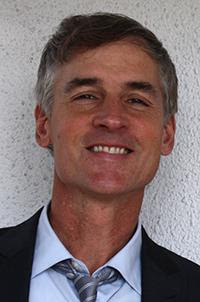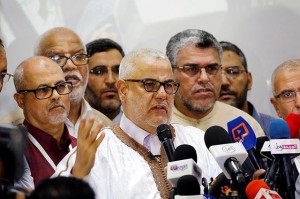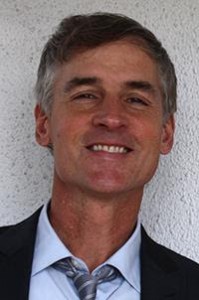Minnpost.com
Community Voices
by Mark Mahon
REUTERS/Youssef Boudlal
PJD leader and current Prime Minister Abdelilah Benkirane, a folksy mix of Jimmy Carter (deep faith) and Bill Clinton (feel their pain) connected with like-minded voters in a genuinely ground-breaking manner: passion.
Within one month of each other, Morocco and the United States held federal elections. For the Kingdom of Morocco, it was the first post-Arab Spring parliamentary election. The Oct. 7 election was a mini-referendum on the current coalition government in a nation that is similar in both size and population to California. Viewed from Morocco, the U.S. presidential election on Nov. 8 seemed to serve as a barometer for the health of the nation’s civil society.
As a political junkie, I have enjoyed querying my Moroccan colleagues and neighbors about politics, from Donald Trump and Hillary Clinton to the minutiae of Morocco’s electoral system. Moroccans, generally, greeted news of Trump’s victory (explaining the Electoral College system is the very definition of diplomacy) with either slight bewilderment or casual indifference. “The people will always be friends,” said one friend from the Sahara Desert region. Here, both Moroccans and Americans like to boast that – way back in 1777 – Morocco was the first nation to recognize the independence of the American colonies. The long friendship has more than endured.
Appropriate or not, I looked for some commonalities between the election cycle and results in the United States and Morocco. Morocco has become a close U.S. ally in the tumultuous Middle East-North Africa region. The Kingdom of Morocco navigated the tumult of the Arab Spring in 2011 and 2012 fairly well. This year, automaker Renault announced a $1 billion investment for an automotive ecosystem in northern Morocco, and Boeing is planning a similar aerospace hub investment. Add to this Morocco’s growing cache as a leader in Sunni Islamic scholarship and religious tolerance. Imams and Muslim scholars from at least seven countries – France to Nigeria – come to study at Mohammad VI Institute in Rabat. 2014 was a record year for foreign film/TV production inside Morocco. Exciting times.
Was there angst among the Moroccan electorate, too? Yes. We have more in common than you’d think. Angst. In Arabic: qalaq.
Shake up the system
The entire Middle East-North Africa region is in the midst of a demographic youth bulge: Roughly half of the population of the region is under 30. The growing private sector economy is struggling to find jobs for all the country’s young college graduates (and those who decide to leave middle- and high school early). Voter turnout on Election Day was 43 percent, down from 46 percent during the previous round of parliamentary elections in 2011. Over half of my 20- and 30-something friends told me they hadn’t voted — a reflection of the ambivalence held by unemployed or underemployed young adults. They wanted to know that their voices would be heard, and that the government would have concrete plans to train young adults and provide them with career opportunities. They wanted service. Now.
In the U.S., nationwide voter turnout was just over 55 percent, the lowest in 20 years. Rising personal incomes and relative peace abroad didn’t seem to diminish a sense of national malaise. It was difficult to explain American angst to my Moroccan friends and counterparts. The socioeconomic and political fractures within the U.S. are not lost on citizens across the globe, but American soft power (YouTube, Hollywood) has more staying power among many young adults than hard problems like racism and inequality. During the U.S. presidential campaign, I sensed more shouting past one another than dialogue with one another. A Pew Center survey of partisan attitudes conducted this past summer indicated that 49 percent of Republican respondents and 55 percent of Democratic respondents said they were “afraid” of the other party.
One U.S. election exit poll survey question was very telling and one that would yield a similar response among the Moroccan electorate: Which candidate quality matters most? Of four given choices, the top response (garnering 39 percent) was a candidate who can bring change. 83 percent of that 39 percent chose Trump. Change, again. It showed itself in a slightly different way here, too. The current governing party, the Party of Justice and Development (PJD) surpassed all expectations and actually increased its percentage of the vote, from 26 percent to 32 percent (it picked up 19 seats in the 395-seat parliament). Impressive by Moroccan electoral standards as coalition government is the norm and most leading parties rarely if ever break the 20 percent threshold. The moderate Islamist party had governed Morocco for five years, instituting painful subsidy rollbacks and pension reforms, faced on and off criticism from the mainstream media. Yet it outperformed expectations. JDP supporters showed up on Election Day. One big reason, a friend told me, was that the JDP says what it means, and it does what it says. It was shaking up the system.
Straight talk resonates with Moroccans. PJD leader and current Prime Minister Abdelilah Benkirane, a folksy mix of Jimmy Carter (deep faith) and Bill Clinton (feel their pain) connected with like-minded voters in a genuinely ground-breaking manner: passion. He campaigned as an outsider who promised supporters that he would continue to reform the nation’s public and administrative institutions while protecting disaffected young people and the poor. Several Moroccan friends told me that they admired the party’s desire to upend the old rules of the game. Sound familiar? Whether PJD delivers on its lofty promises is yet to be determined. The opposition countered that the system overhaul advocated by PJD was ill-suited to Morocco’s collaborative political heritage and stewardship of Morocco’s diversifying economy should be the top priority. The PJD certainly has everyone’s attention here.
Polarized electorate
The other half of the shake-up-the-system election story here in Morocco is the equally impressive performance of the second-place finisher, the Party of Authenticity and Modernity (PAM). The centrist party, with an impressive social media machine and a program promoting experience and competence, more than doubled its seat total, from 47 to 102. It now takes on the role as the loyal (and large) opposition. Morocco’s modern political tradition includes a collection of 30 registered parties. Historically, perhaps four or five parties would dominate the vote during an election cycle, each receiving about 50 or 60 seats in the lower house of parliament. Not in 2016. PJD and PAM broke from the pack and each will hold more than 100 seats, more than doubling their respective historical averages. They have given Moroccan voters something new: clarity. PJD: faith, reform and transparency. PAM: inclusion, economic growth and competence. Both parties claimed mandates in their own right because both had genuinely connected with a significant number of voters who felt inspired by the message. The self-congratulating by both parties was so pronounced that it was hard to know at times, as a non-Moroccan, who finished first and who finished second.
In the U.S., the mildly curious red-state-blue-state phenomenon that I relished discussing with my Moroccan friends over the last three years has become a slight drag on my deep pride for being American. Especially when viewed from a more communal society that engages in heated political discourse more sparingly. Here political arguments, like family arguments, are often settled by dinnertime. Even bitter small town rivals will cross paths and share an occasional tea break. It seems Americans are politically segregating themselves, by town, by city, by state. The average margin of victory in U.S. Senate races this year was 22 percentage points. The average House victory margin was almost 37 points. In reference to President Obama’s selection of Judge Garland to be the next Supreme Court Justice last spring, a good friend here asked me, “Is it Obama’s job to pick a new Supreme Court Justice, or the new president next year?” Um …
Candidate charisma
I saw Twin Cities’ media coverage of Trump’s brief campaign rally at MSP airport on Nov. 6. Why, I wondered, was he in Minnesota? At a last-minute rally held in an aircraft hangar? Now I know. The mass rally spectacle trumped field offices in 2016. Here, too, in Morocco, large and medium-sized campaign rallies held by the leading parties have taken on a rock-concert feel. There are no TV attack ads here, so parties rely on a mix of old-fashioned door knocking, social media saturation and candidate rallies.
During the 2016 election cycle, Morocco’s political parties registered some 9,000 activities and events with the national electoral commission. That’s double the number of the 2011 election cycle. The stump speech messages were more macro-level “I feel your pain, change is coming …” than party platform recitations. Party leaders connected with supporters using real emotion: PJD leader Benkirane, overwhelmed by the size and passion of the crowds, was moved to tears at several campaign rallies. PAM leader Ilyas El Omari, using populist rhetoric, sought to make the election a referendum on PJD’s stewardship of both the economy and Morocco’s civil society over the last five years. He was certain that voters were not better off than they were five years earlier. That message yielded a strong second-place finish and it created a new narrative in Africa’s fifth largest economy: economic opportunity fuels social equality and a stronger civil society. “We will drive the Moroccan train back to its original rails,” he said in one interview.
Moroccans didn’t vote in large numbers this year, but they did take notice and there was real passion among voters who perceived Morocco to be at a social and economic crossroads. And Moroccans aren’t shy. In the next round of elections they’ll be ready with the local version of an American classic: What have you done for me lately?
The coalition-building process is still under way in Rabat. PJD needs the support of at least two second-tier parties to form a governing coalition. It’s a phenomenon that doesn’t exist in winner-take-all Washington, D.C. But it’s definitely a process that would benefit the American psyche in such a bitter political climate. Were the legendary tales of after-hours fraternizing by House Speaker Tip O’Neill and President Reagan true? I hope so.
I stayed up all night on Nov. 8 in Rabat glued to my smartphone, watching America select a new president from afar. Tired and dazed the next day, I talked about the results with a Moroccan friend. He consoled a weary Golden Gopher with some timeless Arab wisdom:
Winds do not blow as the ships wish.
Mark Mahon is a community engagement professional and writer from Minneapolis. He currently lives in Rabat and served as a Peace Corps volunteer in Morocco for 29 months (2013-15). He currently works as a cultural facilitator for higher education study abroad organizations.
WANT TO ADD YOUR VOICE?
If you’re interested in joining the discussion, add your voice to the Comment section below — or consider writing a letter or a longer-form Community Voices commentary. (For more information about Community Voices, email Susan Albright at salbright@minnpost.com.)









